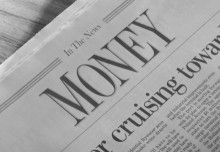Event
Mid-summer Reading List: Viral news, press credentials, economic reporting, NPR beginnings
July 24, 2014 – Add to your summer reading list: Four new papers from Shorenstein Center Fellows and affiliates. Topics include how viral patterns affect the democratization of news, how press credentials are regulated, how reporters misrepresent economic information, and how NPR got its start.
The Philosopher King and the Creation of NPR
 by Steve Oney, Joan Shorenstein Fellow, Spring 2014
by Steve Oney, Joan Shorenstein Fellow, Spring 2014
Steve Oney, author of And the Dead Shall Rise, tells the story of the creation of National Public Radio, and how its philosophy was shaped in its early days, with a unique focus on content quality over broadcasting techniques. The paper is an excerpt of a forthcoming book to be published by Simon & Schuster.
Read the full paper (PDF).
The Media and Markets: How Systematic Misreporting Inflates Bubbles, Deepens Downturns and Distorts Economic Reality
 by Stefan Theil, Joan Shorenstein Fellow, Fall 2013
by Stefan Theil, Joan Shorenstein Fellow, Fall 2013
Stefan Theil, business journalist and former European economics editor at Newsweek, looks at the systematic mistakes that editors and reporters repeatedly make when they cover the economy.
Read the full paper (PDF).
The Challenges of Democratizing News and Information: Examining Data on Social Media, Viral Patterns and Digital Influence
 by John Wihbey, Managing Editor, Journalist’s Resource
by John Wihbey, Managing Editor, Journalist’s Resource
John Wihbey, Managing Editor of Journalist’s Resource, provides a new perspective on the promise that digital technologies and social networks hold for the further democratization of media.
Read the full paper (PDF).
Who Gets a Press Pass? Media Credentialing Practices in the United States
 by Jeffrey Hermes, John Wihbey, Reynol Junco and Osman Tolga Aricak
by Jeffrey Hermes, John Wihbey, Reynol Junco and Osman Tolga Aricak
A project of the Digital Media Law Project at Harvard University’s Berkman Center for Internet & Society and the Journalist’s Resource project, the report explores media credentialing practices in the United States through a nationwide survey of more than 1,300 newsgatherers.
Read the full paper (PDF).